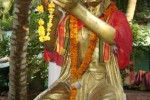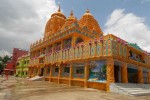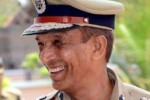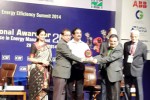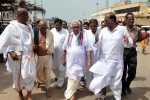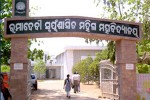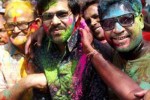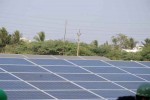By Rajesh Malhotra and Pankhuri SrivastavaLouis L’Amour has rightly said that to make democracy work, we must be a notion of participants, not simply observers.One who does not vote has no right to complain.Democracy can be seen as an extension of people’s participation.It is a form of government in which the supreme power is vested in the people and exercised by them directly or indirectly through a representative system of elections.Democracy will collapse without proper and fair participation of its citizens.Every vote reassures our democracy and makes it stronger.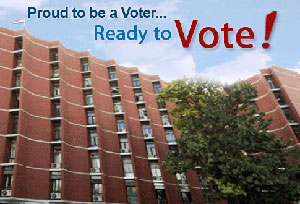 In this context, general elections 2014 were proved to be historic.66.44 percent voters comprising of 554.1 million people have accessed their franchise to vote.Prior to this, the highest turnout was recorded as 64.02 percent in 1984.Not only this, the gender gap between the male and female turnout was reduced by 1.55 percentage points in Lok Sabha elections 2014.16 States and UTs recorded a higher women turnout.To add to the glory, women voters surpassed men for the first time ever in any Lok Sabha elections in nine States or Union Territories.The credit for achieving such figures lies with the efforts of Election Commission of India.No doubt engaging with and motivating such a large and diverse population to cast their vote was a gigantic task with myriad range of complexities and challenges.Election Commission of India adopted Systematic Voters’ Education and Electoral Participation (SVEEP) programme to increase voters’ turnout both in terms of quality and quantity.SVEEEP formulates policies, lays down the framework, plans interventions and monitors implementation besides carrying out continuous interaction with voting publics, civil society groups and media.They broadly include situation analysis; systematic planning and implementation of targeted interventions (on IMF model) based on the situation analysis, mid programme review and monitoring and end term review.The communication interventions include multi-media and inter-personal communication, physical events and innovative activities for mobilization of people/community and voter Facilitation.National Voters Day is one such initiative which was adopted in 2011 to reach out to masses of the country.Since then it is being observed every year with the objective to increase enrolment of voters and to make universal adult suffrage a complete reality.A series of mass interactive activities like symposiums, cycle rally, human chain, folk arts programmes, mini-marathon, competitions and awareness seminars will be organized on the fifth National Voters Day which will be celebrated on 25th January 2015 across the country.25th January is also the foundation day of the Commission, which came into being on this day in 1950.The theme for NVD 2015 is ‘Easy Registration; Easy Correction’.The Booth Level Officers (BLOs) in over 6 lakh (0.6 million) Polling Station areas will felicitate the newly registered voters in a brief ceremony and hand over their Elector Photo Identity Card (EPIC) to give the younger generation a sense of responsible citizenship.They will also be given a badge with the slogan “Proud to be a Voter – Ready to Vote”.It took a lot of convincing on part of civil societies and NGOs in sensitising people to exercise their valuable right.Several campaigns were launched to encourage masses especially the young generation, women and transgenders for leading them to polling booths.They acted as a catalyst to spread voter education.It was due to combined efforts of NGOs, Civil Societies, Election Commission of India, etc that India is touching new heights of voters’ turnout.Free and fair elections are the life force of democracy.Credible elections at stipulated intervals have ever since enabled India’s peaceful transformative journey for inclusion and empowerment of common citizen.The justification of election as a key anchor of democracy comes from the fact that it translates the idea of people’s power to a physical reality.This can effectively happen only when people are able to exercise such power through informed participation.(PIB Features)Rajesh Malhotra is Director (M&C) in PIB New Delhi attached to Election Commission of India, and Pankhuri Srivastava is Information Assistant in PIB New Delhi.
In this context, general elections 2014 were proved to be historic.66.44 percent voters comprising of 554.1 million people have accessed their franchise to vote.Prior to this, the highest turnout was recorded as 64.02 percent in 1984.Not only this, the gender gap between the male and female turnout was reduced by 1.55 percentage points in Lok Sabha elections 2014.16 States and UTs recorded a higher women turnout.To add to the glory, women voters surpassed men for the first time ever in any Lok Sabha elections in nine States or Union Territories.The credit for achieving such figures lies with the efforts of Election Commission of India.No doubt engaging with and motivating such a large and diverse population to cast their vote was a gigantic task with myriad range of complexities and challenges.Election Commission of India adopted Systematic Voters’ Education and Electoral Participation (SVEEP) programme to increase voters’ turnout both in terms of quality and quantity.SVEEEP formulates policies, lays down the framework, plans interventions and monitors implementation besides carrying out continuous interaction with voting publics, civil society groups and media.They broadly include situation analysis; systematic planning and implementation of targeted interventions (on IMF model) based on the situation analysis, mid programme review and monitoring and end term review.The communication interventions include multi-media and inter-personal communication, physical events and innovative activities for mobilization of people/community and voter Facilitation.National Voters Day is one such initiative which was adopted in 2011 to reach out to masses of the country.Since then it is being observed every year with the objective to increase enrolment of voters and to make universal adult suffrage a complete reality.A series of mass interactive activities like symposiums, cycle rally, human chain, folk arts programmes, mini-marathon, competitions and awareness seminars will be organized on the fifth National Voters Day which will be celebrated on 25th January 2015 across the country.25th January is also the foundation day of the Commission, which came into being on this day in 1950.The theme for NVD 2015 is ‘Easy Registration; Easy Correction’.The Booth Level Officers (BLOs) in over 6 lakh (0.6 million) Polling Station areas will felicitate the newly registered voters in a brief ceremony and hand over their Elector Photo Identity Card (EPIC) to give the younger generation a sense of responsible citizenship.They will also be given a badge with the slogan “Proud to be a Voter – Ready to Vote”.It took a lot of convincing on part of civil societies and NGOs in sensitising people to exercise their valuable right.Several campaigns were launched to encourage masses especially the young generation, women and transgenders for leading them to polling booths.They acted as a catalyst to spread voter education.It was due to combined efforts of NGOs, Civil Societies, Election Commission of India, etc that India is touching new heights of voters’ turnout.Free and fair elections are the life force of democracy.Credible elections at stipulated intervals have ever since enabled India’s peaceful transformative journey for inclusion and empowerment of common citizen.The justification of election as a key anchor of democracy comes from the fact that it translates the idea of people’s power to a physical reality.This can effectively happen only when people are able to exercise such power through informed participation.(PIB Features)Rajesh Malhotra is Director (M&C) in PIB New Delhi attached to Election Commission of India, and Pankhuri Srivastava is Information Assistant in PIB New Delhi.
January 23, 2015
Breaking News:
- Saudi Arabian economic growth to accelerate in 2025 as oil taps open
October 23, 2024, 5:17 am - Hurricane Milton ravaged one of the most popular areas for 'snowbirds' on Florida's Gulf Coast
October 23, 2024, 4:06 am - People Who Went To See A Doctor "Just To Be Sure" And Ended Up Surviving Because Of It Are Sharing Their Stories
October 23, 2024, 2:35 am - Harris deploys Obama, Eminem as Trump shows fear amid record-breaking early voting
October 22, 2024, 11:43 pm - The Abrams tank built to fight the Soviets appears to be at war on Russian soil
October 22, 2024, 9:23 pm - Kristy strengthens into a hurricane in the eastern Pacific Ocean
October 22, 2024, 8:57 pm - Vance’s wife carries this 800-page book around with her on the campaign trail
October 22, 2024, 7:15 pm - Mexico announces food and agriculture plan that could take the country back to the 1980s
October 22, 2024, 7:00 pm - Key Atlantic current could collapse soon, 'impacting the entire world for centuries to come,' leading climate scientists warn
October 22, 2024, 6:49 pm - 20-year-old Gates woman killed in crash identified
October 22, 2024, 6:39 pm


